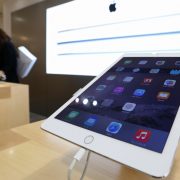Now Microsoft is revamping the user-tracking tools in Windows 7 and 8 to harvest more data, via some new patches.
All the updates can be removed post-installation – but all ensure the OS reports data to Microsoft even when asked not to, bypassing the hosts file and (hence) third-party privacy tools. This data can include how long you use apps, and which features you use the most, snapshots of memory to investigate crashes, and so on.
The updates are KB3068708 (“Update for customer experience and diagnostic telemetry” and mandatory) KB3075249 (“Update that adds telemetry points to consent.exe in Windows 8.1 and Windows 7”) and KB3080149 (also an “Update for customer experience and diagnostic telemetry”, both optional).
The notes explain that diagnostic telemetry data is sent to settings-win.data.microsoft.com (64.4.54.253) over SSL. Privacy advocates note that the OS is hardwired to use that hostname, so trying to override the IP address it resolves to using your PC’s hosts file won’t work.
The tools relate to Microsoft’s CEIP (‘customer experience improvement program’). Disabling the monitoring tools is complicated, requiring tweaks via both the policy editor, and at application level.
If you’re not bothered by anonymised data being sent to Microsoft (or mobile data caps) then the telemetry elevations probably won’t bother you.
Microsoft’s “contextual operating service”, Cortana – which has caused much of the privacy concerns, even though it’s fairly well explained – remains an exclusive to Windows 10 and Windows 8.1 Phone.
Originally Published in The Register







